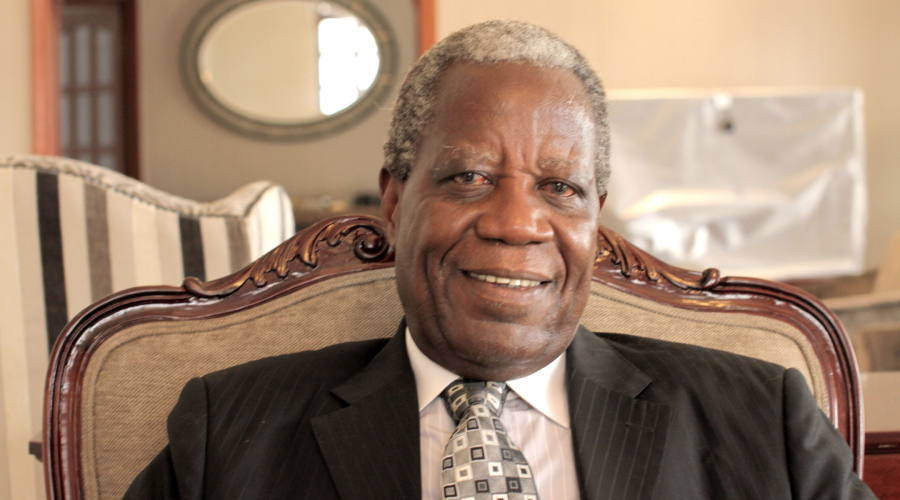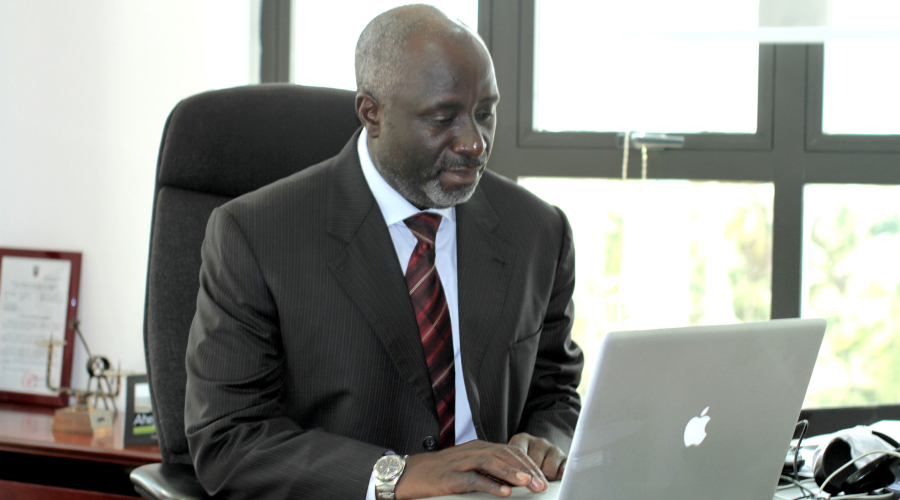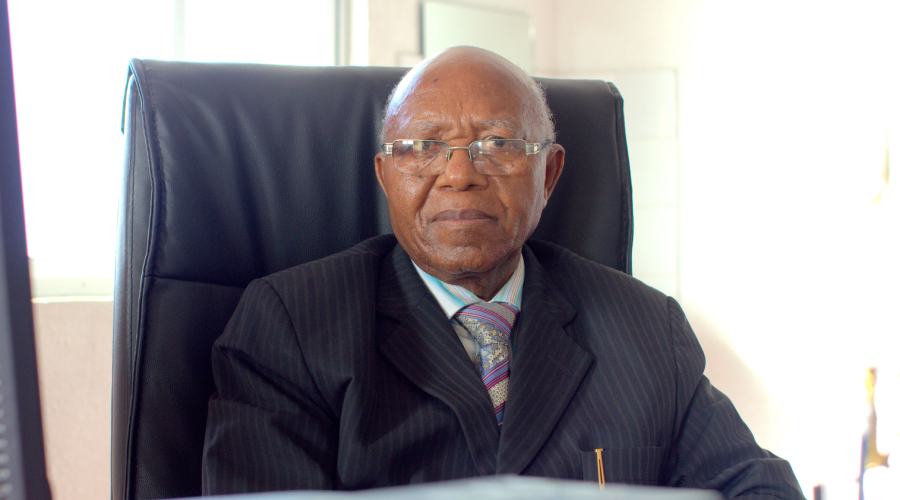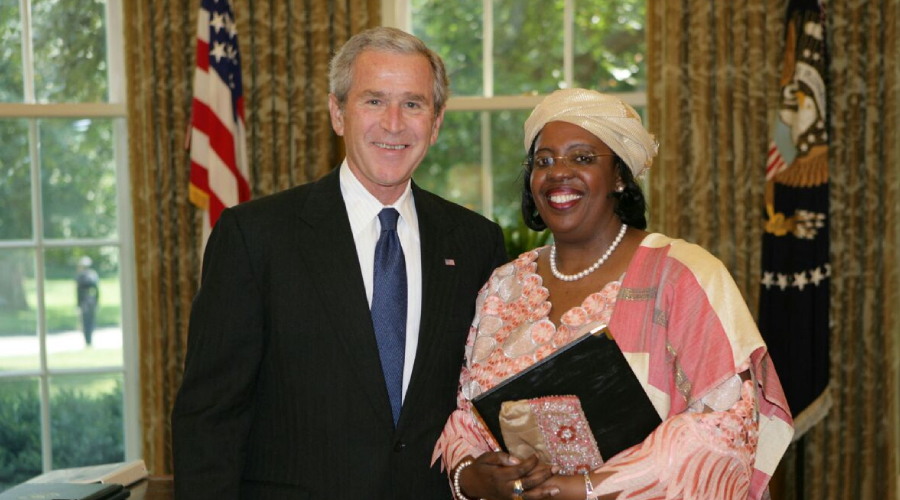Ami Mpungwe as unique, outstanding diplomat-cum-businessperson

Tanzania is renowned all over the world for having produced outstanding diplomats. They have selflessly served the world and many of them have received awards and honours for a job well-done.
To succeed in both a diplomatic career and in business, and at the same time endlessly continue serving the country in different capacities requires a unique personality of which Ami Ramadhan Mpungwe is endowed with. In 1994 he was appointed first Tanzanian High Commissioner to South Africa. He is a unique diplomat who has profoundly benefitted Tanzania. He was the brain behind the first link between the free South Africa and Tanzania after the collapse of apartheid in 1994. A lot of investors flooded Tanzania through the hands of Mpungwe.
Mpungwe was the icon of peace in Rwanda and tirelessly worked day and night during Rwandan peace negotiations until the agreement was signed in Arusha. It was not a simple task in the world of diplomacy since peace negotiation tasks all over the world have never been simple at all. Maybe very few people know how Mpungwe almost lost his life during the peace transition in Namibia. Renowned Namibian freedom fighter Anthony Lwobosk was assassinated a few minutes before he had dinner with Mpungwe and a few other freedom fighters.
The assassination was a turning point in the history of Namibia. But most importantly, it portrayed the diplomat as a hardnosed person who was never deterred from taking risky, but noble tasks of ensuring peace through negotiations.
A book can be written about the involvement of Mpungwe in peace processes and the fruits of his wisdom towards the freedom struggle of Southern African countries’ independence and his close ties with then South African President Nelson Mandela, first Namibian President Sam Nijouma, etc.
This made Mpungwe one of the few high commissioners who would visit Mandela without making any appointments. He was Mandela’s trusted comrade from whom he always sought for consultation especially on African issues and in 1999 South African President Mbeki decorated him with the Order of Good Hope, South Africa’s highest award granted to foreign citizens for his distinguishes service to the liberation of South Africa, economic integration in Southern Africa (SADC) and for promoting closer ties between South Africa and Tanzania.
It is good to be a high commissioner and enjoy all the privileges accorded to one, but Mpungwe served and honourably retired before his time to join business in 1999. It should be noted that it is a rare choice especially among diplomats. But because of his negotiation skills, the corporate world received him as an asset. He successfully ran Tanzanite One, the only Tanzanian company to have ever been listed in London Stock Exchange (LSE).
Apart from Tanzanite One, Mpungwe sat on numerous boards of companies as director.
He was one of the most sought in international business consultants in Tanzania. When he was Chairperson of the Board of Rural Electricity Authority (REA) in Tanzania, Mpungwe remained committed to the development of people who live in rural areas where electricity is most needed. The current REA Chairperson is Maj-Gen (rtd) Jacob Gideon Kingu.
But there is another side of Mpungwe which makes him a perfect inspirational citizen of Tanzania besides all that he has achieved. Mpugwe remains the most approachable person one can ever meet. He drives himself, can hardly bypass you without a greeting, and enjoys chatting even with the lowest person in the community. That is why his employees refer to him as a friend. Who’s who Tanzania had an occasion to sit down with him. Please, follow us and get it from his mouth.
When Who’s who Tanzania met him in his small office in Oyster Bay, smiley simple looking and welcoming Mpungwe was wearing a green checked shirt and a pair of blue jeans.
He took Who’s who Tanzania through his life, as a businessperson, what made him leave diplomatic service at an early age and what he thought young Tanzanians have to do to prosper in a world he described as “the life of the elephant and the flea”, an allusion to Charles Hardy’s Novel. He discussed the role of Tanzania’s mining sector and public-private partnership (PPP) in improving service delivery in Tanzania.
Who’s who in Tanzania: Your Excellency, readers of Who’s who Tanzania would like to know who Ambassador Ami Mpungwe is.
Ambassador Ami Mpungwe: Well (smiling) that protocol (your Excellency) disappeared 13 years ago. Like most people of my generation, I was born of a humble background and raised in a rural setting. My father was a school teacher. Although teachers were the rural elite at the time, I didn’t have some of the luxuries my children enjoy. I would walk a long distance to and from school and went through hell and especially on rainy days. But the good thing about that period was that my parents were strict disciplinarians and that’s why we have managed to succeed. After my advanced level, I studied political science at the University of Dar es Salaam after which I was offered a job in Foreign Service.
Who’s who in Tanzania: Most young Tanzanians fear leaving their paid job on their own. What prompted you to retire from diplomatic service at only 48 years of age?
Ambassador Ami Mpungwe: Three things made me retire. One is that I felt I was burnt out, having joined the diplomatic service at a youthful age. I also felt I had reached the pinnacle of my career. I played an active role in South Africa, Namibia and many other struggles in the region. I also did a lot towards promoting investment and tourism in Tanzania. So surely, I thought I had done enough for my country. This is not to say I woke up one morning and said I was retiring, No, I prepared myself for some time. Knowing that I could be appointed to some company boards, I studied an MBA Executive course at the University of Pretoria when I was High Commissioner to South Africa. I also did a course in ICT.
Who’s who in Tanzania: As a person in the corporate world, what are some of the investment opportunities young Tanzanians have at their disposal?
Ambassador Ami Mpungwe: Tanzania has a lot of opportunities for investment. What we are mining is just a fraction of the minerals we have in the country, just like other countries in East Africa. Then, we have tourism, livestock and agriculture which most educated African youth undermine. Tanzania is the only East African country that shares direct boundaries with all other countries in the East Africa Community: Kenya, Uganda, Rwanda, Burundi [including South Sudan and the Democratic Republic of Congo (DRC), which during this interview were not yet members of EAC], and SADC is also around, which gives Tanzania a huge market.
Many people look at mining and as I said earlier the potential for mining is high. Tanzania started mining reforms in 1998 and in five years it had become the third country in Africa. There is a lot of minerals in East Africa. All we need is to concentrate on the economic front. These boarders were established in the 1930s and 1940s.
They don’t affect the geology of our countries. Most of the minerals you find in Tanzania are also found in Kenya and Uganda and Rwanda.
Who’s who in Tanzania: Are you insinuating that mining is the future of Tanzania’s economy and East Africa as a whole?
Ambassador Ami Mpungwe: To some extent I would say, Yes. But we need do what Chinese and Europeans do: shift from the centralised economy to the common market.
Who’s who in Tanzania: As the CEO of Tanzanite One, do you think mining companies have done enough towards the socioeconomic growth of the communities where you get these valuable stones?
Ambassador Ami Mpungwe: Mining companies are involved in corporate social responsibility. They are doing a lot in terms of direct and indirect investment. They are opening up agriculture, commerce and tourism.
There is also the establishment of infrastructure like roads, schools, dispensaries, the provision of clean and safe water and employment to improve the welfare of communities around mines, but these are also the requirements of the mining sector to function. In fact, these companies are doing more than many Tanzanians recognise. Mining business is not all a bed of roses. It requires a lot of skills and is capital intensive. Its returns take long to come and so many companies operate on losses. But this doesn’t stop them from investing.
Who’s who in Tanzania: You are currently Chairperson of Rural Electrification Authority (REA). Your Excellency, what is your take on private-public partnership in Tanzania towards service delivery?
Ambassador Ami Mpungwe: There is a great need for the public and private sectors to work together. We can move a lot of things faster if we partner and create social responsibility. The private sector knows how to optimise resources and decision-making is faster. This is not the case with the public sector. Public enterprises require strong dynamic leadership. Take the energy sector, for example. Tanzania had managed to achieve only 2.2 per cent since independence. But with public-private partnership it has achieved 7 per cent in four years.
Who’s who in Tanzania: Ambassador, who are some of the personalities that have influenced you in life?
Ambassador Ami Mpungwe: The first is my father. As I said early he was a strict disciplinarian. After being a teacher he attended many conferences in different countries.
When he returned home he had these revolutionary ideas he would talk about and that’s what kept us wanting to succeed. In my professional career I have Salim Ahmed Salim, and others. Regionally, I have people like Thambo Mbeki. In business you hear of the success stories of Reginald Mengi, and many more people have had an impact on my life.
Who’s who in Tanzania: Your Excellency, what are some of the things young Tanzanians need to learn from people of your generation?
Ambassador Ami Mpungwe: The young generation has less to learn from what I like calling the age of the “baby boomers” (referring to a generation born in the 1950s after the world war.) I would say we are examples not to follow.
We lived in an era where you were paid to study and the state had a lot of jobs. But now young Tanzanians have to be innovative. Our education system has to change as well - from creating job seekers to making job creators.” Young people like you (pointing at a group of interviewers) have a lot you can do with your knowledge in linguistics. I read Charles Hardy’s The elephant and The flea. In the analogy the elephant is the government and the flea its citizens. Charles says in the new world the flea will be running away from the elephant to do its own. The message in it is that, the future generation should move away from paid jobs to venture into businesses. As I said earlier in Tanzania opportunities are unlimited.
Who’s who in Tanzania: Ambassador, what do you consider to be your personal achievements?
Ambassador Ami Mpungwe: What I have done for this country can make up a booklet (smiling). Personally, I take as my greatest achievement the fact that I created a perception that you don’t have to work for the government or a big organisation to succeed. Opportunities are opening up, take them as they come.
Who’s who in Tanzania: Do you have any regrets in life, Your Excellency?
Ambassador Ami Mpungwe: Well, only one thing I regret is that the generation of the “baby boomers” has not passed on the history of the events to the new generation. My generation and your generation disconnect. We have gone through a lot of experiences. Most of the changes you see in Tanzania, Uganda, Kenya, Zimbabwe, Namibia and South Africa took place in the 1950s and in the 1960s. It is difficult to have a generation without history. Take, for example, reasons for the headquarters of SADC is situated in Botswana, a country that wasn’t a member of frontline states at the time.
All members of the frontline states were comfortable with Arusha in Tanzania. But Mwalimu Julius Nyerere in his wisdom told them it was not a good idea for Tanzania to host such a (baby) organisation. The British would kill it. So, he asked Sir Selse to hold the baby. Some of these experiences we have gone through, historians will search in vain to explain. We don’t have a culture of passing on the history to the next generation and that is my biggest regret.



